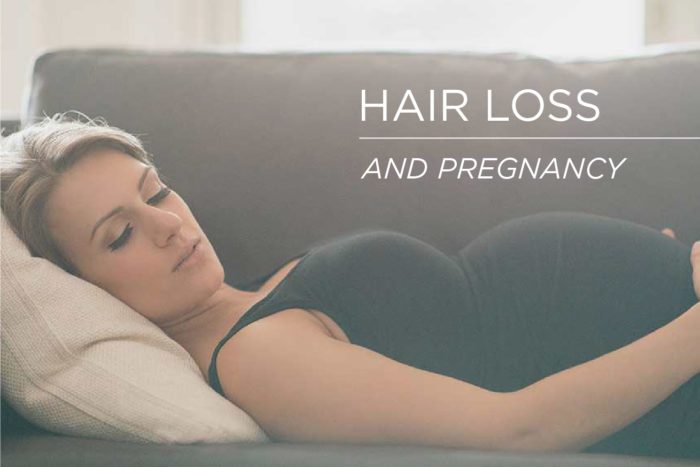Pregnancy is an exciting time and, for some women, it can be a time for great hair, glowing skin, and tons of delicious food. But as some women near the end of their pregnancy, they might notice some changes in their hair –like excessive shedding or even bald spots! Unfortunately, this is a side effect of the hormonal changes that occur during pregnancy. Don’t fret, though, as hair loss during pregnancy is common and reversible.
How Hormones Affect Hair Growth
When a woman gets pregnant, her body starts to produce more estrogen than usual. In most cases, this causes hair to grow thicker and stronger than before. Excessive estrogen also extends the growing phase for most hair, which means pregnant women will lose less hair over the course of their pregnancy. For most women, this causes their hair to feel thicker, but really it’s just that they have more of it.
As the pregnancy draws to a close and birth gets closers, the levels of estrogen begin to lower. Then, with the birth of the child, a woman’s estrogen levels drop to pre-pregnancy levels (or even lower). This means most women experience hair shedding and hair loss – sometimes at alarming rates.
This post-pregnancy hair loss is totally normal, though! If you’re in the throes of pregnancy hair loss, we have a few tips for weathering the storm until your hormones (and hair) balance out again.
Tips for Pregnancy Hair Loss
When you notice hair loss at the end of your pregnancy or after childbirth, the best thing you can do is:
– Don’t freak out. Your hair will come back; this is very normal and it will grow back. Try using hair fibers to ease with the fallout, you’ll thank us later.
– Use gentle shampoos and conditioners. The less stress you put on the hair you still have, the easier it will be for the hair follicles to start producing again.
– Don’t over-style or use tons of products. The more you play with your hair, the more likely it is to fall out. Just gently brush it and leave it down as much as possible.
– Eat a healthy diet. The more fruits, veggies, and healthy fats (think avocados and salmon) you eat, the faster your body can return to its normal state.
– Be patient! Your hormones can take up to six months to stabilize, and even longer if you nurse your child longer.
Stress Levels and Hair Loss
There’s another big player in hair loss during pregnancy: stress. Having a baby can be incredibly stressful, especially once the baby comes and sleep is in short supply. This intense stress can increase levels of cortisol in the body, which can throw hormones even more off-balance.
To make sure your cortisol levels don’t further impact your hair loss during pregnancy:
– Take breaks if you need
– Ask others for help
– Sleep as much as possible
– Avoid other stressful activities (work, family, etc.)
As a woman, hair loss can be very emotional. The important thing to remember is that it will grow back. All you need to do is treat your existing hair well. Topical solutions like hair fibers promise to make you feel comfortable, until your hormones and hair get back to normal. The rest will grow back in time!

